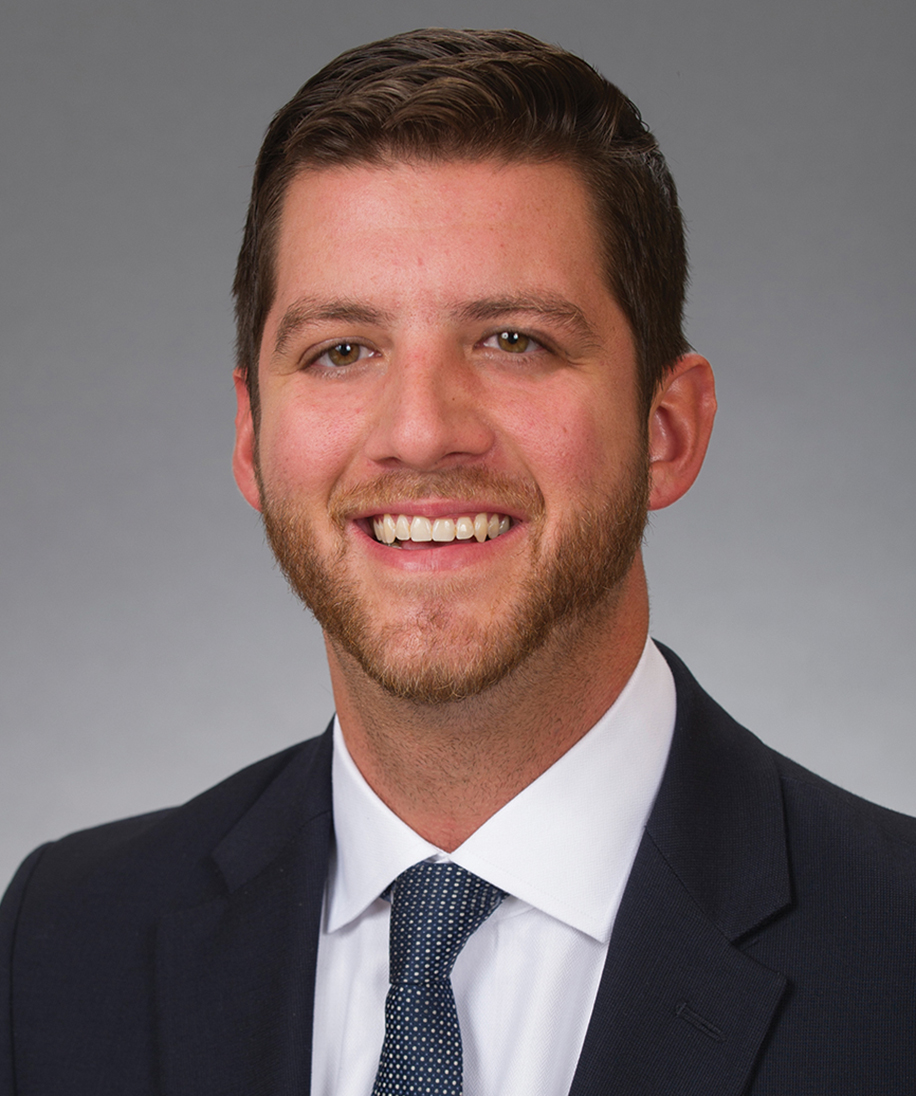Client Alert
Key Takeaways From the Novartis 345 Million Dollar FCPA Settlement
July 01, 2020
By Gary Giampetruzzi, Jonathan Stevens , Jessica Montes & Michael Mottweiler
On Thursday, June 25, 2020, the United States Department of Justice (“DOJ”) announced a pair of deferred prosecution agreements with one current and one former subsidiary of Swiss pharmaceutical giant Novartis AG to resolve criminal Foreign Corrupt Practices Act (“FCPA”) allegations to the tune of a combined $233 million. In a parallel resolution, Novartis AG agreed to pay the Securities and Exchange Commission (“SEC”) $112 million to settle charges that it violated the FCPA in connection with misconduct by its subsidiaries. Novartis’s combined $345 million resolution represents the largest FCPA resolution of this calendar year since the monumental Airbus resolution in January, as well as the third largest FCPA resolution of all time in the life sciences industry. Additionally, this resolution is the second time within the last four years that Novartis AG has fallen under regulatory scrutiny for alleged FCPA misconduct; it reached a $25 million resolution with the SEC in March 2016 related to two of its Chinese subsidiaries. With Thursday’s resolution, Novartis is the first FCPA recidivist manufacturer in the pharmaceutical sector.
Pursuant to the deferred prosecution agreements (“DPA”), Greece-based Novartis AG subsidiary Novartis Hellas S.A.C.I. (“Novartis Greece”) agreed to pay a total monetary penalty of $225 million, and former Singapore-based Novartis AG subsidiary Alcon Pte. Ltd. (“Alcon”) agreed to pay a total monetary penalty of $8.9 million in connection with improper transfers of value to health care providers (“HCPs”). Novartis Greece was charged with conspiracy to violate both the anti-bribery and books and records provisions of the FCPA. Alcon, on the other hand, was only charged with conspiracy to violate the books and records provision. On the SEC side, Novartis AG settled alleged violations of the FCPA’s internal controls and books and records provisions.
The Novartis Greece Agreement
The Novartis Greece DPA focuses on conduct spanning from 2009 to 2015. Therein, Novartis Greece admitted to improper conduct constituting independent “quid pro quo” schemes of two varieties: (1) improperly providing HCPs with international travel to medical conferences; and (2) improperly directing monetary payments to HCPs pursuant to an “investigational study.” Each of these transfers was effected in an apparent exchange for increased prescriptions of Novartis Greece’s drugs. Novartis Greece also admitted to books and records violations in tandem with these transfers of value.
In the first instance, from 2012 to 2015, Novartis Greece provided HCPs from state-owned hospitals and clinics with international travel to educational meetings and conferences for improper purposes, typically in Europe or the United States, at a cost often exceeding $6,000 per attendee, per conference. These costs would typically include airfare, lodging expenses, and registration fees paid for the HCP attendee, as is normally the case for legitimate sponsorships. In some cases, Novartis Greece sales representatives would accompany the HCPs to the conference destination, which according to the DOJ, was to facilitate the provision of improper benefits. The charging document alleges that Novartis Greece fashioned these costs as legitimate advertising and promotion expenses in an attempt to conceal the true nature of the expenditures.
The DOJ pointed to several indicators suggesting the quid pro quo nature of these transfers of value, including communications among management and employees showing that the company specifically targeted top key opinion leaders (“KOLs”) to provide with travel. These documents expressly indicated Novartis Greece’s desire to increase the “loyalty” of these KOLs through travel to certain medical congresses. In more flagrant examples, meeting minutes, and even action plans for sales staff, explicitly stated, “to get [a trip to a conference] you must write [prescriptions]. No presents anymore.”[1] Internally, these documents advised that sales representatives “must make clear” that Novartis Greece’s drugs are “facing difficulties in the market and for this reason there will be serious consequences,” namely, medical conference travel would be withheld.
The second type of exchange concerned a proposed phase IV clinical study (i.e., a post-approval study, which are traditionally high risk), from 2009 to 2010, by which Novartis Greece was to provide free testing equipment to over 2,200 HCPs, at considerable expense, in order to collect and analyze patient medical data. The Novartis marketing team was in charge of the study, which according to the DOJ, was designed such that an increase in patient enrollment would lead to an increase in prescriptions of a Novartis Greece hypertension drug by participating HCPs. However, Novartis Greece’s local management decided to repackage this “high value” program as an “investigational study,” in part, to escape Greek regulatory scrutiny. Because the study involved the collection of patient data, it would require approval from the Greek government’s National Organization for Medicines. Thus, Novartis Greece redesigned the “investigational study,” imbuing it with the amorphous goal of evaluating the percentage of uncontrolled hypertensive patients in Greece.
The redesigned program resulted in direct payment to HCPs for their participation in the form of gathering data and completing case report forms for enrolled hypertension patients. The program targeted over 2,200 HCPs with these payments, reaching over 44,000 patients. A debrief of managers and employees after the study, which was evidenced by company audio recordings[2]captured by Novartis Greece, indicated that Novartis Greece employees and HCPs both seemed to understand that payment was exchanged for writing prescriptions. As with HCP sponsorships to third-party meetings and conferences, Novartis Greece fashioned these costs as advertising and promotion expenses in its internal documentation.
The Alcon Agreement
Alcon, a former Novartis AG subsidiary, admitted to a scheme by which improper payments were made to HCPs from state-owned facilities via a “consultancy program” used in coordination with its distributor in Vietnam from 2007 to 2014.
Alcon, headquartered in Singapore, operated a pair of Representative Offices (“ROs”) in Vietnam. As is common practice, Alcon engaged a third-party distributor to engage in sales in the country, in lieu of direct sales by the ROs. However, according to the DOJ, Alcon and the distributor coordinated to establish a “consultancy program” with a stated purpose to “encourage[] doctors to introduce and use Alcon’s [products]” to thereby “speed up [product] sales.”[3] Pursuant to the consultancy program, payments were made to HCPs per Alcon product ordered by the HCP. The DOJ highlighted the importance of Alcon executives directly discussing this program in numerous meetings.
The “consultancy program” structure was initially configured according to the following payment stream. Alcon’s distributor would make direct cash payments to a HCP according to the volume of products used. The distributor would then request a “credit note,” amounting to an invoice, to the RO for reimbursement of the payments. The RO would then send these requests to Alcon corporate, where an Alcon regional manager would approve payment. Finally, credit notes would be issued, with the stated reason for the note as “consultancy fees,” but which actually represented up to 50% of the cost of the original “kickback” payments made to the HCP.
At first, these distributor payments were made under the guise of “consultancy fees,” before, in later years, taking the form of inflated reimbursable costs including general marketing costs. Alcon admitted to diverting funds from a general marketing budget to support these distributor payments, and to later shrouding payments to the distributor, and ultimately to HCPs, in other ways, including free product samples, “margin reconciliation costs,” or rebates.
Novartis AG SEC Resolution
Novartis AG agreed to cease and desist from future violations of the FCPA’s internal accounting and books and records provisions in connection with Novartis Greece’s and Alcon’s improper conduct, as well as additional allegedly improper conduct in South Korea. Regarding the internal control deficiencies in Greece, the SEC emphasized internal communications evincing commercial motivations for sponsoring HCPs to attend medical conferences, and highlighted the involvement of senior managers. Additionally, the SEC highlighted Novartis AG internal audit findings of control deficiencies associated with the phase IV clinical study and inability to validate studies as non-promotional. With respect to Vietnam, the SEC faulted Novartis AG for failing to take sufficient steps to halt the improper consultant payments after Novartis AG and Alcon’s merger in 2011. Rather, after the merger, the consultancy program was internally rebranded under different program names (e.g., patient education), and the distributor payments to HCPs continued for several years and resulted in false Sarbanes-Oxley sub-certification letters.
With respect to South Korea, Novartis resolved certain well-publicized allegations that it had made improper payments to HCPs in South Korea through round tables and third-party medical journals. Novartis Korea allegedly transmitted improper honoraria to HCPs for round tables through medical journals to avoid compliance scrutiny, and endured marketing suspension and $50.3 million in sanctions from South Korea authorities for this conduct. Separately, similar to the conduct in Greece, Novartis Korea allegedly expended $7 million between 2011 and 2016 to support HCP travel to international conferences, including where Novartis Korea employees considered the sales volumes of HCPs who were offered sponsorships.
Reflections on the Resolution
The DOJ’s and SEC’s agreements with each respective entity shed significant light on the type of misconduct currently within focus for the DOJ’s and SEC’s FCPA Units, and emphasize the importance of effective compliance controls around traditional risk points for life sciences companies, such as HCP sponsorships to third-party meetings and conferences, phase IV or other post-approval studies, distributor payments and reimbursements, and pre and post-acquisition diligence. Additionally, the resolutions, and particularly Novartis’s status as a repeat FCPA offender, underscore the importance for all companies to proactively and regularly evaluate and revise their compliance programs in view of current risk factors and lessons learned from industry peers and historic issues. In particular, those entities operating in the life science space should take note of at least the following:
International Travel Benefits Continue to Be a Focus for Life Sciences
Novartis is the latest illustration of the enforcement risk and scrutiny associated with sponsoring HCPs to attend third-party educational meetings and conferences. This is particularly true if such sponsorships include travel to international meetings and conferences when the HCP may have access to local educational opportunities. Life sciences companies have an affirmative obligation to ensure that HCPs are educated on the safe and effective use of their products. Companies generally do so in one of two ways: Companies directly support the HCPs themselves to attend the meetings or companies make a grant to the organization hosting the meeting to support HCP attendance. There is nothing improper in and of itself in providing either type of support. However, since as early as 2002, when the DOJ and SEC first brought enforcement actions against life sciences companies for the provision of travel and accommodations related to third-party educational meetings and conferences, life sciences companies were put on notice that these transfers of value pose meaningful FCPA risks if not structured and executed appropriately.
Putting aside the overt conduct referenced in the charging documents that speak to the executional risks associated with sponsoring HCPs to attend third-party meetings and conferences, some of the more notable structural risk points mentioned in the Novartis resolution include the fact that “sales employees” were somehow involved in the process of determining which HCPs would be sponsored, and were in a position to use “international congress” attendance to improperly influence the HCP’s use of Novartis products. The settlement also mentioned that fact that the brand and tactical plans, which are traditionally developed and managed by the marketing departments at pharmaceutical companies like Novartis, referenced HCP sponsorships to third-party meetings and conferences as a marketing tool to increase product utilization and market share. Lastly, the settlement referenced the fact that meetings and other documents related to KOL relationships, which are traditionally managed by medical affairs or non-commercial personnel at pharmaceutical companies like Novartis, tied meeting or conference attendance to KOL “loyalty” and “cooperation” and referenced return on investment, or “ROI.”
As is generally the case, the settlement papers did not provide specific details as to the presence or absence of certain compliance controls, but the abovementioned facts could evidence certain compliance program risk points that often increase the likelihood that HCP sponsorships will be used in an improper manner. The charging documents and DPA did not mention whether sales employees, by policy or otherwise, were supposed to be excluded from HCP sponsorship determinations, whether legal or compliance personnel reviewed brand and tactical plans, or whether KOL relationships were supposed to be managed by non-commercial personnel, but strong compliance and financial controls in these areas often prevent or detect the type of overt conduct mentioned in the settlement.
The Risk of Distributor Relationships
The DOJ also indicated, via the Alcon resolution, that distributor relationships constitute yet another area of substantial regulatory scrutiny. Independent distributors are a common, and often necessary, sales channel for life sciences companies operating in certain countries around the globe, and, as the primary touchpoint between a company and HCPs that may be considered foreign officials, a potential pitfall. To date, over 50% of life science FCPA resolutions involve distributor misconduct. As further evidenced by this settlement, the DOJ and SEC continue to signal the risks associated with ill-defined pools of reimbursable distributor expenses (e.g. “marketing” or “administration” costs), the use of free samples, rebates, and other price concessions. The Alcon and Novartis AG DPAs are a reminder of the importance of controls over payment streams involving foreign distributors, and the U.S. government’s expectation that entities will mitigate these risks with appropriate compliance and financial controls.
Self-Reporting Prevails
The DOJ and SEC have allowed an admitted two-time FCPA transgressor to self-report itself in lieu of appointing an independent monitor. Given the relatively short time frame elapsed since Novartis AG last found itself under FCPA scrutiny—where, it bears noting, it was also permitted to self-report and presented cooperation and compliance program enhancements comparable to those in the 2020 resolution—this is a somewhat surprising element of this resolution. In both the 2016 and 2020 resolutions, the DOJ and SEC recognized cooperation and remediation efforts made in the course of the investigation: terminating and disciplining individuals at fault, implementing heightened controls and protocols such as enhancing its third-party due diligence and management program, improving its anti-corruption training, and increasing compliance investments and resources. However, the surprising result of another self-reporting requirement may be largely explained by the fact that the conduct at issue in this case occurred prior to the 2016 resolution, and thus presumably involved at least some control failures that Novartis AG had rectified with its prior two-year reporting period, which ended without extension in 2018. Additionally, the reporting obligations are not equal insofar as, in 2016, Novartis AG agreed to two-year reporting and, here, Novartis AG and Novartis Greece both agreed to three-year reporting terms, as did former subsidiary Alcon.
Novartis Greece Pays the Price as Pharma’s First Recidivist
With Thursday’s resolution, Novartis AG represents the first pharmaceutical company to be a repeat offender of the FCPA, and it joins three other medical device companies as the life sciences industry’s initial FCPA recidivists. The DOJ’s press release regarding Novartis Greece specifically cites Novartis AG’s prior conduct in explaining its decision to impose a $225 million penalty on Novartis Greece. While both Novartis Greece and Alcon each received a 25% reduction in their respective financial penalties relative to the U.S. Sentencing Guidelines, the Government indicated that Novartis Greece’s substantially higher penalty was attributable, at least in part, to the recent commission of similar misconduct by its parent entity. Similar to the 2020 resolution, Novartis AG’s $25 million 2016 civil resolution with the SEC concerned improper sponsorships of HCPs to conferences and improper payments to HCPs to collect “medical data.” The fact that Novartis is now facing a substantially larger—and criminal—resolution for similar misconduct should send a strong message to other pharmaceutical and life sciences companies in favor of regular risk assessments, root cause analyses, and responsive compliance program enhancements to avoid “making the same mistake twice.”
The Importance of FCPA Diligence in Mergers & Acquisitions
The SEC settlement paper with Novartis AG details the entire duration of Alcon’s consultancy program (i.e. 2007 to 2014), and specifically notes that Novartis AG failed to stop the improper payments after its acquisition of Alcon in 2011. Novartis purchased a non-controlling percentage of Alcon in 2008 for $10.4 billion, and the remaining shares through two separate purchases in 2010, with the $51.6 billion acquisition closing in April 2011. This is yet another in a long line of examples where due diligence and integration failed to flag and mitigate pre-acquisition FCPA risk. The DOJ and SEC, however, have emphasized the importance of risk-based due diligence in mitigating FCPA liability for the acquiring entity. The DOJ and SEC specifically advise acquiring companies to conduct risk-based bribery and corruption diligence, effectively train and integrate the acquired entity, timely audit the acquired entity, and promptly disclose any identified issues.[4] The very fact that SEC highlighted Novartis AG’s failure to stop Alcon’s continuing misconduct suggests that its due diligence in acquiring Alcon may have been insufficient, highlighting the importance such diligence steps may have in protecting the acquiring entity from any of its target’s prior misconduct.
[1] The Novartis Greece Information can be accessed here (https://www.justice.gov/opa/press-release/file/1289751/download).
[2] While the DOJ and SEC charging documents, related settlement agreements, and press releases do not mention a whistleblower, a private law firm has issued a press release referencing their representation of “confidential and anonymous Greek whistleblowers” and the DOJ and SEC working “effectively with the whistleblowers.” The charging document referencing the audio recordings does not mention the nature or source of the audio recordings.
[3] The Alcon Information can be accessed here (https://www.justice.gov/opa/press-release/file/1289741/download).
[4] See FCPA Resource Guide; see also U.S. Dep’t of Justice, Opinion Release No. 08-02 (Jun. 13, 2008).
Contributors




Practice Areas
For More Information

